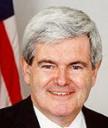I spent my elementary school years in Africa, and when my family returned to the United States, I found it strange that my classmates and teachers talked as if the United States was the only country in the world mattered. Still to this day I wonder why most Americans believe there is no need to listen to what’s happening in other countries or to learn from them. What I didn’t realize was that I was taking exception to “American exceptionalism.”
The traditional explanation for America’s failure to listen is American exceptionalism, which simply put is the belief that other countries cannot compare to the United States because it is so special.
Frenchman Alexis de Tocqueville in 1831 created the concept as he traveled through the United States.
 (Doesn’t he look young for being a notorious sociological commentator and world traveler?)
(Doesn’t he look young for being a notorious sociological commentator and world traveler?)
Later sociologist Martin Lipset cast it as the historical explanation for American’s rejection of socialism and the welfare state.
 (Now he looks more like the stereotypical famous sociologist.)
(Now he looks more like the stereotypical famous sociologist.)
Exceptionalist beliefs differ from, but go hand in hand with, convictions of moral superiority, ethnocentrism, and nationalism.
Is America so special it does not have to listen to the rest of the world? Of course not, but the world thinks Americans hold that opinion of themselves.
A 2007 BBC international opinion poll in 18 countries concluded “Listen more is the world’s message to the US” The poll found that most of our allies did not agree with the United States handling of:·
- The Iraq crisis·
- Guantanamo detainees·
- The Israel-Hezbollah war·
- Iran’s nuclear program
- Global warming
You might argue: “The US just has an image problem; we need to communicate better.” But Joseph S Nye, Dean of the JFK School of Government at Harvard said “To communicate effectively, Americans must first learn to listen.”
Incidentally, Professor Nye has written an important book
 The title doesn’t sound interesting but he interprets power in terms of soft and hard power and how we need to blend them, which he labels “smart power.” He makes a strong case that the US foreign policy of the past 8 years has been the opposite of smart power.
The title doesn’t sound interesting but he interprets power in terms of soft and hard power and how we need to blend them, which he labels “smart power.” He makes a strong case that the US foreign policy of the past 8 years has been the opposite of smart power.
Returning to the challenge of listening and American “humility”, here are some soul-searching questions for us as Americans:·
- Did we listen right after 9/11 when we thought we needed revenge, any revenge?·
- Do our embassies around the world listen, when most of the staff don’t know the local language?Do our intelligence agencies listen, when only a tiny percentage speak languages other than English?·
- Do our armed forces listen when they know next to nothing about the culture of countries that threaten us?
- Do we really listen when we never listen or read any world news except that which comes from American corporate media? (Personally I have found that Link TV (a cable channel) is by far the least biased on world news, especially the Middle East, of any non-print news source. NPR and PBS are pretty objective but even they have to worry too much about pleasing their sponsors.This topic deserves a future post.)
So that we do not hang ourselves by our own hubris, we should be reflective and soul searching about our beliefs of America’s place in the world. The best place to start is by listening to what people in other countries are saying. There are many different ways of listening and some can be fun. 



